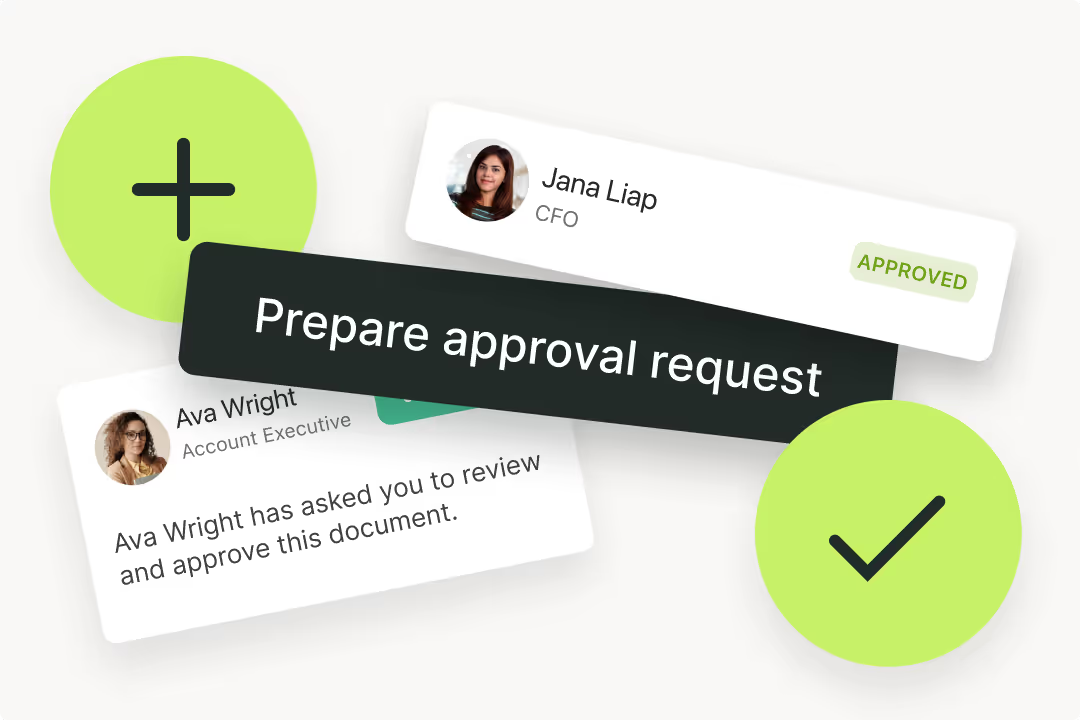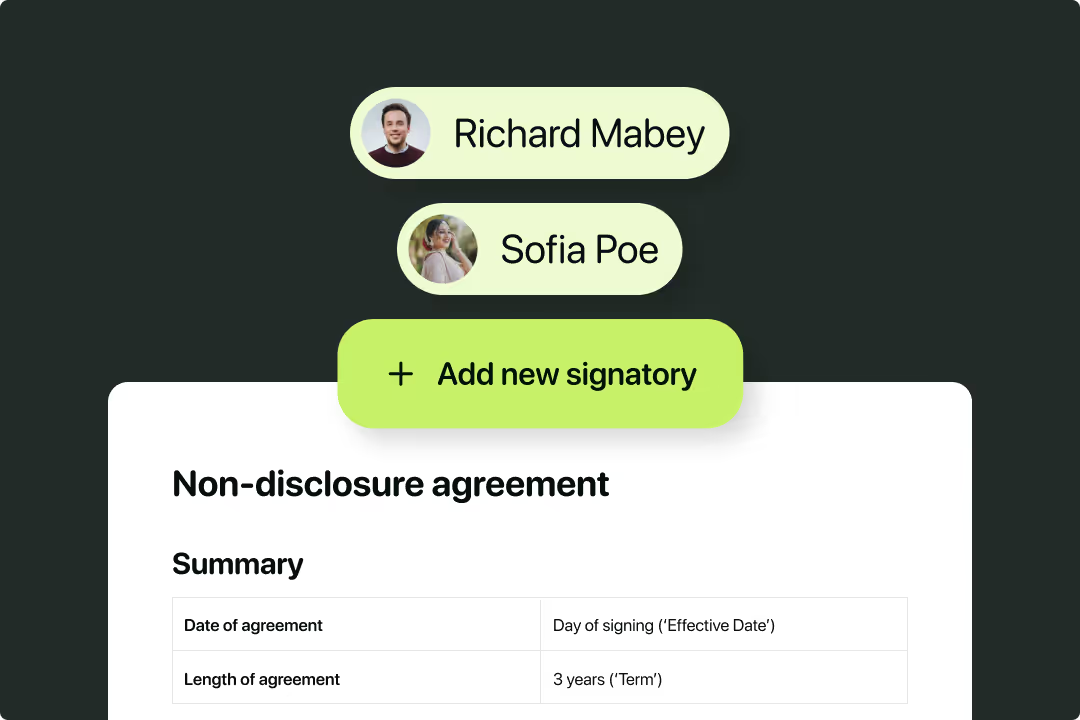Solutions
Customer Support
Resources
Contract governance describes a set of processes that businesses put in place to manage their contracts in an effective and compliant way. The purpose of contract governance is to mitigate risks, ensure performance, and maintain strong relationships with counterparties.
Without contract governance, businesses can find themselves faced with unmet obligations, contract value leakage, and legal implications. Yet, few businesses prioritize contract governance in 2026, leaving them at risk.
Fortunately, there are a few simple steps you can take to avoid falling into this trap. Let's explore how businesses like yours can improve their contract governance now.
One way to improve your contract governance is to assure greater consistency when creating contracts. This often involves standardizing your contract templates and making sure commercial teams only create contracts with terms drafted and pre-approved by legal.
Standardization eliminates the risks associated with unclear or unfavorable contract terms. It also means that stakeholders know what to expect when executing certain business contracts, making it easier to predict the resources and work required to perform it successfully.
{{quote1}}
Finding opportunities to automate contract-related tasks is another great way to improve your approach to contract governance.
Automating contract workflows can reduce manual input and minimize the possibility of costly mistakes. It can also empower legal teams to focus on higher-value contract governance tasks where their expertise is most valuable.
Automating certain workflows will also help to standardize the contract lifecycle management process. For example, automated contract approval workflows ensure contracts are reviewed by the relevant stakeholders, and at the right time.

Automated contract workflows remove the problems that occur when commercial teams have too much discretion over contract terms, while still providing the flexibility needed to account for different circumstances and contingencies. This is essential for effective (but realistic) contract governance.
Businesses often fail to assign roles and responsibilities to the relevant stakeholders. This can result in a few problems.
All of these things contribute to increased contract risk, so it’s important to be clear and precise when allocating certain roles and responsibilities. It should also be obvious when things should be escalated, and who they should be escalated to.
You should make the wider business aware of contract governance processes by providing comprehensive training and capturing them in a playbook they can refer back to. This is a great way to make sure the measures you put in place are adopted throughout the business.
However, the best way to codify contract processes is to automate them using contract lifecycle management software.

Automating workflows in a CLM solution like Juro enables commercial teams to self-serve on contracts with confidence. It means fewer queries for legal to answer, and fewer blockers. As a result, commercial teams can agree contracts 10x faster than with traditional tools.
To find out more about how Juro’s intelligent contract automation software can improve contract governance for your business, hit the button below.

Before you can achieve effective contract governance, you need to understand what it involves and how you can measure success. The best way to do this is to set yourself contract management KPIs or metrics.
These can cover anything from how quickly you review contracts to how many times you deviate from standard terms or miss a contract renewal deadline. Consider what matters to your business when it comes to contract governance, and what targets you can set based on this.
Contracts often involve numerous stakeholders, and communication between these to become messy without the right tools and processes in place.
Some requests are captured in track changes. Others are shared in email chains. With no single source of truth for this information, it’s not surprising that things often get lost or confused.
To ensure better contract governance, you need to streamline communication by bringing it into one place. Juro’s all-in-one contract tool offers businesses the perfect solution, allowing users to leave comments, add redlines and approve suggestions in one unified workspace.
Juro also integrates with communication platforms like Slack to keep other stakeholders in the loop about contracts, with automated updates when certain actions take place. To find out more about this functionality, check out this guide to Slack contract management.
{{quote2}}
To understand how your contract governance process can be improved, you first need to assess what’s working - and what isn’t. For the most accurate picture of this, you'll need to audit your contracts.
This involves evaluating how successfully your contracts have been performed and executed in the past.
The scope and detail required for an audit will vary depending on what you want to achieve. However, a contract governance audit will typically cover the following things:
Still not sure where to start? Check out this guide to contract audits.

Security is one of the most important components of contract governance. This means that how and where you store your contracts matters, and it should never be an afterthought.
Businesses should take steps to secure their contracts and the data within them. This can involve choosing a contract lifecycle management vendor with strong security credentials, or setting strict access controls and permissions for your contracts.
To find out more about how to secure your contracts, check out this guide to contract management security in 2026.
Effective contract governance involves fixing problems and driving efficiencies throughout the contract process. With an all-in-one contract solution like Juro, businesses can do just that.
Juro users can:
To find out more, fill in the form below to book a personalized demo.
Lorem ipsum dolor sit amet, consectetur adipiscing elit. Suspendisse varius enim in eros elementum tristique. Duis cursus, mi quis viverra ornare, eros dolor interdum nulla, ut commodo diam libero vitae erat. Aenean faucibus nibh et justo cursus id rutrum lorem imperdiet. Nunc ut sem vitae risus tristique posuere.

